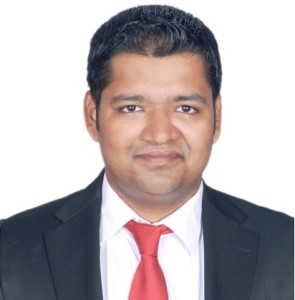 I must admit I feel immense joy when I see an instant message pop-up on my phone screen. I do not think it makes a difference whether it is a meaningful conversation or pure gossip. There is something very gratifying in receiving a response almost instantly. When I think a little more about this feeling I understand that technology today thrives on “instant gratification.” We now pay bills, make restaurant reservations, book travel online, and can google almost everything. The appeal is understandable. I suspect however this feeling has now percolated far beyond the digital universe. This feeling of instant gratification is almost as addictive as an illicit drug and we now seek it everywhere. I may not be the only doctor who has heard “Can’t you just give me one pill and make it better” Doctors, I believe, will increasingly face patients who seek this instant gratification from medicine as well.
I must admit I feel immense joy when I see an instant message pop-up on my phone screen. I do not think it makes a difference whether it is a meaningful conversation or pure gossip. There is something very gratifying in receiving a response almost instantly. When I think a little more about this feeling I understand that technology today thrives on “instant gratification.” We now pay bills, make restaurant reservations, book travel online, and can google almost everything. The appeal is understandable. I suspect however this feeling has now percolated far beyond the digital universe. This feeling of instant gratification is almost as addictive as an illicit drug and we now seek it everywhere. I may not be the only doctor who has heard “Can’t you just give me one pill and make it better” Doctors, I believe, will increasingly face patients who seek this instant gratification from medicine as well.
I believe the impact of this attitude has been twofold on the Indian healthcare system. We have the privately owned hospitals and health systems that are using this to their advantage. Appointments can be made online and blood for pathology is collected at the patient’s house. Reports are e-mailed to the patient and the treating physician as soon as they are available. Patients can search for doctors that are practising in their locality on their phones. The feeling of having all that information at your fingertips is empowering. The pharmaceutical industry is known to market drugs on their ability to provide the fastest onset of relief. The fact that they use fast relief time as a marketing tool only reinforces how they try to appeal to the consumer who is looking for instant gratification. Hospitals and clinics market various schemes and health plans that provide instant access to their services without any wait times albeit for a premium. In a situation where healthcare is an “industry” we are now trying to please the “customer,” more than treating the patient.
There is a flipside to the story. Unfortunately several areas of healthcare systems haven’t been able to keep up in satisfying the patient instantly. It was never uncommon to see large waiting lines in public sector hospitals. However the numbers of patients that complain about them are increasing. Even in privately owned clinics and doctor’s offices long waiting times cause more disgruntlement. Each patient wants to be seen and evaluated properly but no one wants the patient before them to take more time. Patients complain about how a doctor running a busy service saw them only for five minutes, but if he spends more time with them they suspect whether he is doing so because he has no other work. It is surprising to see so many patients who want a one shot cure to all their problems. This hasn’t been restricted to patients with minor illnesses, rather I believe this group includes patients with serious diagnoses. The disappointment on their faces when an elaborate diagnostic or therapeutic plan is discussed is noteworthy. Many doubt the doctor’s ability and take second opinions. While I personally do not mind (rather I encourage) second opinions, I have known many patients to roam from one hospital to another in vain. I do not understand whether they are looking for appropriate treatment or waiting for some doctor to offer the fastest cure. Many patients have lost the temperament to go through a lengthy course of treatment. Many patients either quit taking treatment all together while several turn to alternate/traditional medicine therapy. I have known some to benefit while many have perished.
The impact on Indian society in particular has been peculiar. The level of health awareness and familiarity with healthcare setups across the country remains low. While there are more people with access to the internet now in India, I believe fewer have access to basic healthcare. Even among those who have access, only a few are familiar with how to make use of the facilities. This lack of familiarity and fear of using healthcare facilities cut across socio-economic lines. I admit that with increasing literacy and health awareness programs this situation is likely to change. However while this happens, it will be interesting to note how this “instant gratification” wave changes the practice of medicine in India. A doctor who is an expert communicator may still be able to overcome the hurdle of an impatient patient but for the majority it remains challenging.
Aditya J Nanavati is a general surgeon working in Mumbai, India.
Competing interests: None to declare.
